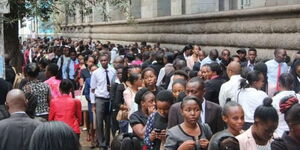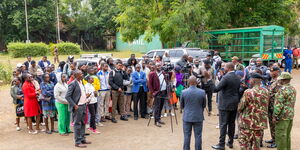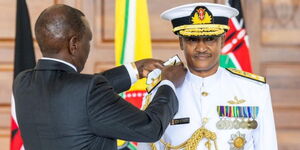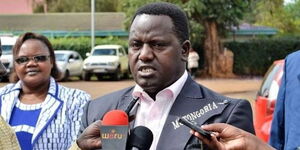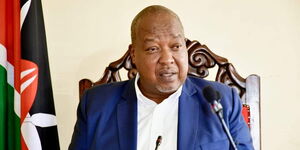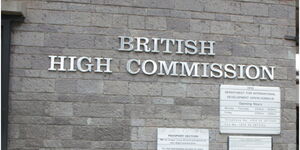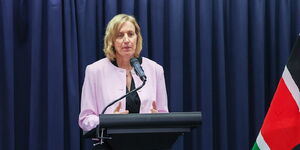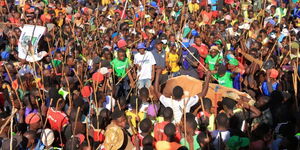Attorney General Dorcas Oduor has dismissed claims that the Public Seal was taken from her and handed over to the Head of Public Service, Felix Koskei.
While addressing the press on Thursday, Oduor, who had remained lip-tied over the matter, maintained that the Public Seal was never moved to Koskei's office.
"The custody of the Public Seal is provided for by law, and that position remains unchanged. The Seal is still in my custody contrary to what has been reported in the media," Oduor stated, amid conflicting reports on its whereabouts.
The seal is used to stamp critical documents to represent the government, to show they are authentic and official.
Further, the AG, who rose to her position following the Cabinet reorganisation and inclusion of the opposition into what has come to be known as the broad-based government, dismissed claims of being sidelined, insisting that they work in harmony.
''As a government, we work together under the leadership of the President, as a united team,'' Oduor added.
Former AG Justin Muturi had alleged that the transfer of the Public Seal was done because the government wanted to avoid checks and legal censure.
"If documents can be signed and bear the public seal without the AG's legal advice, that is a serious issue. I'm sure that they are avoiding accountability by transferring such matters to the HOPS office," Muturi told The Standard.
Meanwhile, Oduor's clarification comes after Government Spokesman Isaac Mwaura made contradicting statements regarding the seal’s custody.
On May 19 he had told journalists that the Seal is at Head of Public Service' office and then made a u-turn on May 22, clarifying that it sits at the AG’s office.
What is the Public Seal?
It is the official national signature, used to authenticate agreements and decisions made by the government on behalf of the people.
The Public Seal is set out in the Second Schedule of the Constitution and is one of the national symbols. It is also found in Part Nine of Chapter Two of the Constitution on national symbols and national days. Other national symbols are the national flag, the national anthem, and the coat of arms.
The Public Seal acts as the formal approval mechanism for governance, financial transactions, diplomatic agreements, and critical national deals.
This means that this machine holds so much power in Kenya than one can imagine. Among the powers it possesses are securing loans for Kenya, signing trade agreements on behalf of Kenya, and leasing national assets.


